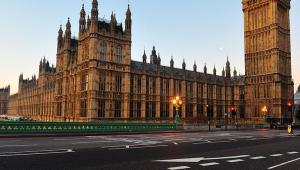10 May 2002
This week, Deputy Prime Minister John Prescott emerged from exile to launch 'Debate 2002' in the form of a white paper offering regional elected assemblies to all that want them.
Prescott, a long-time advocate of regionalism, may be enthusiastic but what about those on the front line? Do they share the forgotten man's excitement?
'No' seems to be the short answer from the latest Public Inquiry, a survey conducted with Reed Accountancy Personnel.
Just 13% of finance managers in the public sector 'agree strongly' that regional government would 'provide a much-needed boost to local government in England', although 24% did 'agree slightly'.
One in three in local government queried the need for a new tier of government – cynicism that might be borne out by the eventual structure of the assemblies.
One of the reasons for this equivocal support seems to be that few believe the new assemblies will be given real power by what remains a centralising government.
More than 70% across the public sector agreed this was a problem while only 12% thought ministers could overcome the belief that 'Whitehall knows best'.
'If general government didn't feel compelled to control everything, perhaps people would feel their vote counted for something. People don't feel empowered,' said one respondent.
One consequence of the new assemblies could be the death of county councils as the government looks to counter the charge that it is creating an unnecessary and expensive new tier.
Given that, you might expect strong resistance to regional government from those at local level. Not so, says the survey.
Nearly six out of ten agreed 'county councils should be abolished if regional assemblies are adopted' (39% strongly; 19% slightly).
And just to prove that some turkeys do vote for Christmas, some of this support came from those working in county councils. Just over 25% of those polled from the counties said 'yes' to abolition. And nearly three-quarters of those from boroughs also wanted to see counties consigned to history.
Not all supported this proposition though, as 26% disagreed that regional assemblies should herald the end of county councils. One of those was Philip Bettles, an accountant at Buckinghamshire County Council.
'Local government should devolve downwards, not upwards – there should be an investigation into the financing of local government by central government. Local government has a better understanding of the local communities' issues,' he said.
He found support from Philip Trupin, a town clerk from Abbots Langley Parish Council. 'More powers have to come down to local levels. So spending can be focused on what people want,' he said.
Giving regional assemblies tax-raising powers also failed to persuade the sceptics, with 55% of all respondents disagreeing that assemblies 'should have greater power than local authorities in levying local taxes'.
So what can be done to invigorate politics? Making local issues more relevant and voting mandatory were suggested, although Sean Hanson, head of revenues and exchequer at Fareham Borough Council, came up with the most eye-catching list of answers.
'Employ real policies, [abolish] public relations companies and political lobbying, make Question Time into a quiz show where the contestants/politicians have to take their clothes off every time the audience thinks they've not answered a question honestly,' he said.
Now there's a thought.
PFmay2002


















